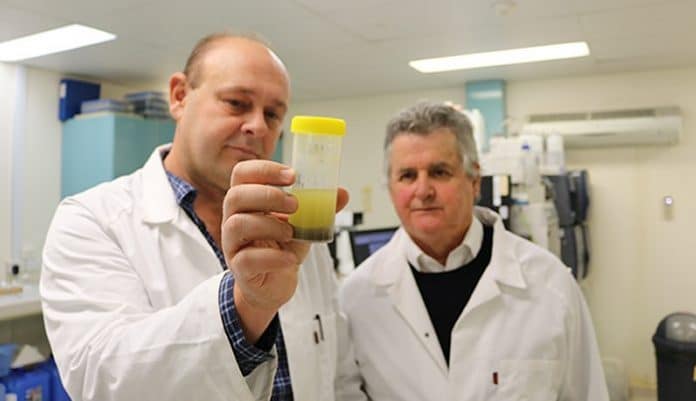A powder made from industrial hemp seed has been found to be very effective in removing particularly problematic toxins from water.
Chemicals contained in foams used for fire-fighting at some Royal Australian Air Force bases has left a nasty legacy – per- and poly- fluoroalkyl substances (PFAS) contaminating wetlands and water supplies. Some of these PFAS compounds have been found to be toxic in laboratory animals, which means they may also affect fish and other aquatic animals.
One of the problems of PFAS chemicals, which includes perfluorooctane sulfonate (PFOS) and perfluorooctanoic acid (PFOA) is they are persistent and bio-accumulative. They do not break down in the environment – ever – and build up in the tissues of organisms.
Hemp may come to the rescue.
University of Newcastle researchers have demonstrated hemp seed proteins to be very effective in removing PFAS substances from water. With the assistance of AUD $600,000 funding from the New South Wales government and additional funding of $220,000 from the University, the researchers will be examining the potential for treating large amounts of contaminated water at an affected RAAF site in the state – Williamtown.
“There is currently no simple remediation method that can target all perfluorinated compounds – the family of chemicals at the centre of the firefighting foam contamination that has affected Williamtown and other communities around Australia and overseas,” said Chief Scientist & Engineer Mary O’Kane.
“While the potential environmental benefits of this research are significant, so is the prospect for a major commercial breakthrough with global application,” she said.
The researchers says there is evidence to suggest once the powder is used, the PFOS substances can be destroyed or recovered.
If the trial is a success, no doubt communities across Australia will be lining up for the hemp seed miracle, including a community in the northern suburbs of Adelaide where local wetlands have been contaminated by PFAS compounds.
It’s not just treating PFAS contamination where industrial hemp may be and already is useful. It’s been utilised for mopping up oil spills and treating soils affected by heavy metal contamination; although in those scenarios it’s the plant involved rather than just the seed.
Industrial hemp’s potential in phytoremediation and other decontamination applications are more reasons why it is considered the world’s most useful plant.


